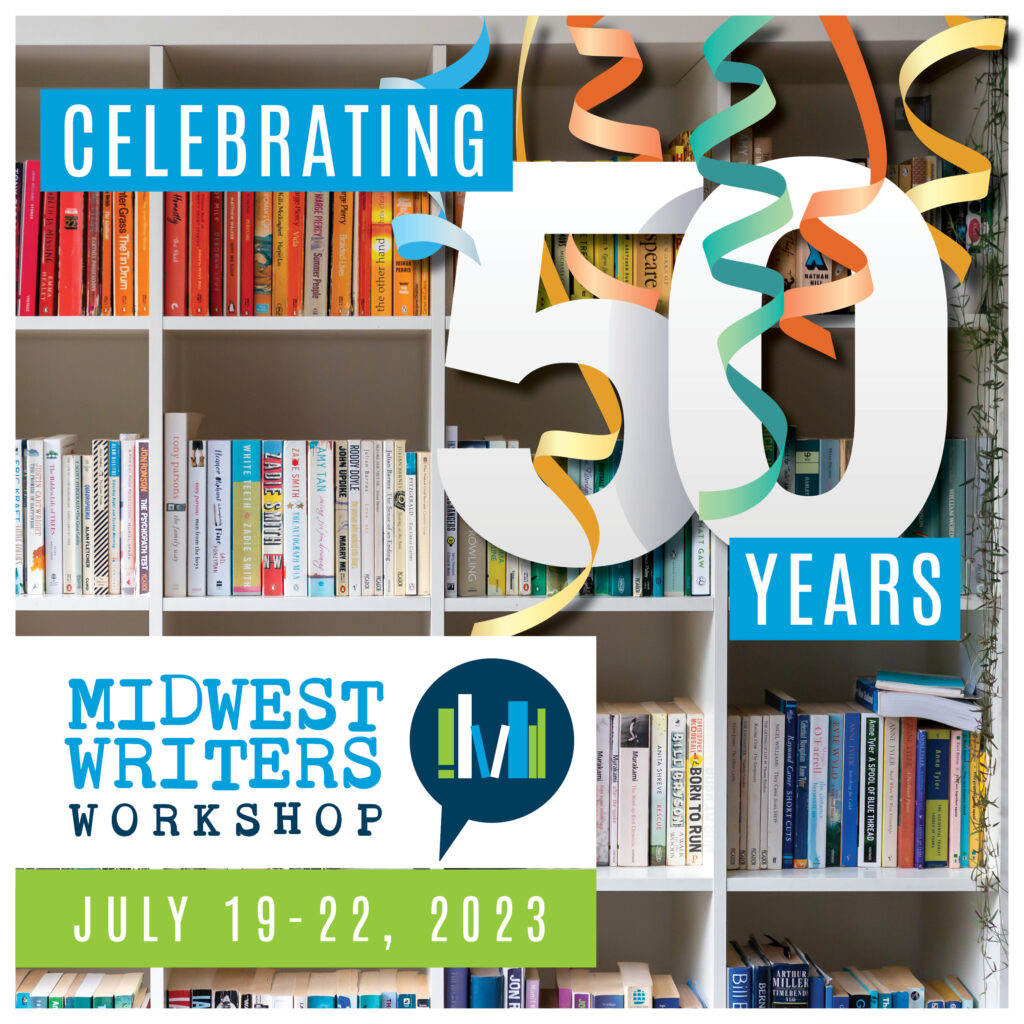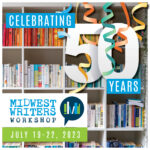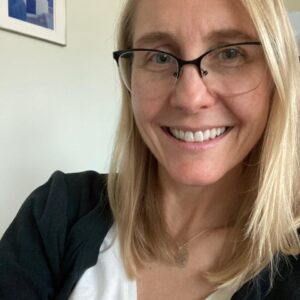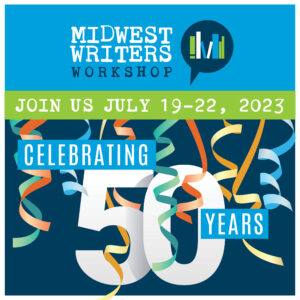Meet Some of Our Alumni Faculty — More to Come!
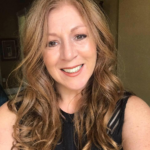 Kelly O’Dell Stanley is a graphic designer who writes. Or maybe a writer who also designs. The author of three books on creativity and faith (with the fourth coming out in fall 2023), she thrives on crafting new and unexpected solutions. Her writing awards include first place in Inspirational Writing in the Writer’s Digest competition, and her award-winning design work has been included in design anthologies and PRINT Magazine’s Design Annual.
Kelly O’Dell Stanley is a graphic designer who writes. Or maybe a writer who also designs. The author of three books on creativity and faith (with the fourth coming out in fall 2023), she thrives on crafting new and unexpected solutions. Her writing awards include first place in Inspirational Writing in the Writer’s Digest competition, and her award-winning design work has been included in design anthologies and PRINT Magazine’s Design Annual.
For more information, find her on Facebook, Instagram, and check out her website!
Kelly is teaching “Amping Up Your Creativity in Creative Nonfiction.”
Q&A with Kelly
MWW: What drew you to your genre and the type of books you’ve written?
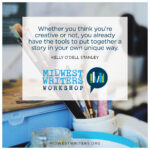
KOS: I love creative nonfiction because of its ability to somehow, almost miraculously, convey universal truths through individual experiences. I’ve found that writing comes from the same inner place in my soul as painting or designing. It is my belief that a fundamental purpose of art is to allow the artist to connect with someone else. When certain types of nonfiction are done well—telling our stories and framing our experiences in a way that others can understand—the words seem to transcend the page and create a shared experience with the reader, fulfilling the basic human need to connect with others.
Contrary to the opinion I had when I first started, nonfiction doesn’t have to be boring. All of the tools available to the fiction writer can come into play—the writer’s voice, setting, description, character arc, metaphor, dialogue, suspense, and all the beauties and intricacies of language. I’ve learned to ask questions like how can I add value for the reader? How can I make my writing more engaging? How can the way I tell my story be enhanced by an unusual framework?
MWW: What’s your favorite takeaway from the session you’ll be teaching? Why do you think this is important for writers to consider in their own work?
KOS: That the very act of nonfiction writing itself is creativity—it’s the act of creating something that didn’t exist in that form before, of telling a true story in an unusual, interesting way. Whether you think you’re creative or not, you already have the tools to put together a story in your own unique way. We’ll discuss questions to ask yourself that can give you a fresh perspective in your writing approach. Writers will walk away from the session having completed some simple brainstorming exercises about their own work. The information in my session applies to all sorts of nonfiction writing—essays, inspirational or informative books, and memoirs.
MWW: How has MWW figured in your writing career?
KOS: I could write for days and still not fully express how much MWW has done for me. First, and most important, it introduced me to my people. They have supported me and inspired me in ways and to an extent no one else in my life has done. Because they were serious about their work, I had permission to be serious about my own and to push myself harder than I would had I been walking this road on my own. I finally found a place where I “ fit” without having to change or be something I am not. In fact, they helped me become a better version of myself.
Attending MWW gave me the confidence to call myself a writer. It removed some of the fear of this overwhelming, intimidating publishing world. It gave me opportunities to connect with professionals in this business, leading directly to my first published articles in a national magazine. I also credit MWW with inspiring my first book, Praying Upside Down. Indirectly, MWW led me to my first traditional publishing contract by giving me the tools to craft a compelling query and book proposal so that I could sign with an agent and then have opportunities to traditionally publish.
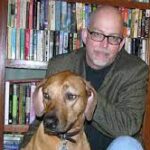 Larry D. Sweazy is a multiple-award author of nineteen western and mystery novels and over one hundred nonfiction articles and short stories. Larry lives in Noblesville, Indiana with his wife, Rose, and is hard at work on his next novel. For more information, find him on Facebook, Twitter, and check out his website!
Larry D. Sweazy is a multiple-award author of nineteen western and mystery novels and over one hundred nonfiction articles and short stories. Larry lives in Noblesville, Indiana with his wife, Rose, and is hard at work on his next novel. For more information, find him on Facebook, Twitter, and check out his website!
Larry is teaching “Mystery/Suspense: “It’s A Mystery!”
Q&A with Larry
MWW: What drew you to your genre and the type of books you’ve written?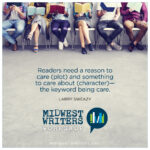
LS: I’ve always liked stories where characters are challenged by the circumstances and environments they find themselves in. Stories of change and reinvention fit in any genre, but mine found an outlet in westerns, mysteries, and earlier in speculative and horror fiction. Like all writers, I was a reader first, and I never shied away from any genre (Colum McCann says to “read promiscuously”, and I like that advice a lot). I didn’t set out to write westerns. I published a short story that I thought was a mystery, but the publisher thought it was a western and published it in a western anthology, and that made me rethink the possibilities of my stories (I grew up in the 1960s so there were a lot of westerns on TV). So, a broader canvas drew me to my genre, but writing in multiple genres excites me, too.
MWW: What’s your favorite takeaway from the session you’ll be teaching? Why do you think this is important for writers to consider in their own work?
LS: I think it’s easy to overthink genre and what the audience expects from it. I hope I can clarify plot and its relationship to characters in mystery stories. No easy feat in an hour, but I’ll try. Readers need a reason to care (plot) and something to care about (character) – the keyword being care. We all get caught up in the mechanics of writing stories, our career ups and downs, and I think it’s easy to forget that the story isn’t about us, has nothing to do with us, actually. By focusing on all of the “writerly concerns” we forget about the reader and make the story and our attempt to entertain far more complicated and inaccessible than it needs to be. I’ll shine some light on all of those things and more in the session I’m going to teach.
MWW: How has MWW figured in your writing career?
LS: MWW made the dream real for me. I was able to see that I could become a working, published writer by standing shoulder-to-shoulder next to top-level writers from around the country. Names I recognized. People that I found out had the same interests and loves as me, a scrawny guy from a Midwestern factory town with no MFA and a big dream. I saw, in my first workshop, the possibility of really doing what I wanted to do with life. It was rocket fuel set on fire. I was forever changed after my first MWW. Writing and publishing became a level playing field: I learned that if I worked hard and persevered, I could find my published novel in a bookstore. And that’s exactly what happened. It took a while, but it happened. I’m not sure I would have believed in the possibilities of a career if I hadn’t attended MWW.
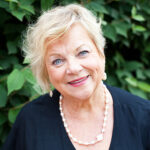 Sandra Baker Baron has a passion for helping people better understand their giftedness, talents, and interests. She has journaled nearly 1,000 pages per year for 40 years. Bridging the Mississippi, her first creative nonfiction book, shows how to bridge racial differences. Her true story is written in fictional style that helps readers relate to her narration and characters. MWW workshops taught her this technique. She served as a board member to support other writers. Sandra received her BA and MA in education from Ball State University and taught high school English and Speech for 35 years. She is an inspirational speaker that has inspired other teachers in Kazakhstan.
Sandra Baker Baron has a passion for helping people better understand their giftedness, talents, and interests. She has journaled nearly 1,000 pages per year for 40 years. Bridging the Mississippi, her first creative nonfiction book, shows how to bridge racial differences. Her true story is written in fictional style that helps readers relate to her narration and characters. MWW workshops taught her this technique. She served as a board member to support other writers. Sandra received her BA and MA in education from Ball State University and taught high school English and Speech for 35 years. She is an inspirational speaker that has inspired other teachers in Kazakhstan.
Sandi is teaching “The Long Write.”
Q&A with Sandi
MWW: What drew you to your genre and the type of books you’ve written?
SB: I was drawn to my genre, creative nonfiction because I had a fantastic story about my husband and I integrating schools in New Orleans in 1967/68. I wanted to write it like a fiction book to keep the reader’s interest. Here’s a link to an interview with Fort Wayne’s news channel, and another from a news station in New Orleans.
MWW: What’s your favorite takeaway from the session you’ll be teaching? Why do you think this is important for writers to consider in their own work?
SB: My favorite takeaway from my teaching session is it is never too late for a dream to come true. I had a burning dream to share my message with others and never let that dream vanish. The timing was slow, but I held on to my dream as if I were flying a kite on a windy day. I could not let it go.
MWW: How has MWW figured in your writing career?
SB: Forty-eight years ago I went to my first MWW. I loved it and took notes constantly. I lived in Muncie and loved going for several years. I then was asked to be on the MWW board. Planning and giving input on guest writers fulfilled my desire to encourage and facilitate writing opportunities for fellow writers. I enjoyed meeting new and established writers. In helping with the MWW workshops, I learned more about the craft and talked to agents and editors who encouraged me to keep trying because I had a great story. I was inspired by how many writers became published or serious writers after attending our workshop.
They will help you write your story!

